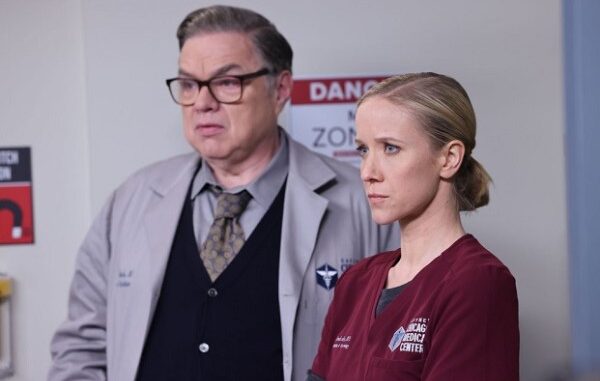
The television landscape is a vast, interconnected universe, a tapestry woven with countless characters, storylines, and the actors who bring them to life. For devoted fans, these fictional worlds often feel as real as their own, and the departure of a beloved character can leave a palpable ache, a void that echoes through the empty halls of their favorite shows. But sometimes, in the grand cosmic ballet of casting, a familiar face from one cherished franchise finds a new, equally resonant home in another, reigniting that spark of connection and delight. Such is the illustrative journey of a "Beloved Chicago Med Alum" finding his footing on "Another Fan Favorite Franchise," a narrative arc that speaks to the power of talent, the loyalty of fandom, and the enduring magic of shared storytelling.
Let us turn our gaze to the labyrinthine corridors of Gaffney Chicago Medical Center and the brilliant, often brooding, Dr. Connor Rhodes. Portrayed with a compelling intensity by Colin Donnell, Dr. Rhodes was more than just a talented cardiothoracic surgeon; he was a character steeped in personal turmoil, a man grappling with a complicated past, a demanding father, and the high-stakes pressure of saving lives. From his initial rivalry with Dr. Halstead to his passionate and ultimately tragic romance with Dr. Ava Bekker, Rhodes carved out a significant space in the hearts of Chicago Med viewers. His surgical prowess was undeniable, his personal struggles deeply human, and his journey often heartbreaking. When Donnell departed the show at the beginning of Season 5, leaving his arc unresolved in a cloud of mystery and grief, it was a gut punch for many. The absence of his brooding intensity, his scalpel-sharp wit, and his undeniable charm left a vacancy that no other character could quite fill. He was a beloved alum, indeed, whose departure left fans wondering where his formidable talent would land next.
For actors who become synonymous with a particular role in a long-running, successful series like Chicago Med, the transition to a new project is always met with a mix of anticipation and trepidation from their fanbase. Will the new role live up to the old? Will they find the same chemistry, the same impact? The waiting game can be long, but for Donnell, the "new home" was waiting in the celestial expanse of a franchise synonymous with innovation, exploration, and an almost religious devotion from its followers: Star Trek.
Enter Star Trek: Picard, a series that dared to revisit one of the most iconic figures in science fiction history, bringing back Sir Patrick Stewart as Jean-Luc Picard for a new generation. Picard was designed to be a love letter to the legacy of Star Trek, while simultaneously pushing its boundaries. It was a fan favorite franchise built on decades of lore, a universe where every minor detail is scrutinized and every new character embraced or questioned with equal fervor. For Donnell to land here was not merely finding another acting gig; it was stepping into an institution, a cultural phenomenon with a fiercely loyal global community.
Donnell’s appearance in Star Trek: Picard, though brief, was profoundly impactful and perfectly illustrative of the seamless transition from one fan-favorite role to another. In a powerful flashback sequence from the third season, he played Jack Crusher, Sr., the father of Beverly Crusher's son, Jack, and a figure of quiet strength and deep integrity. Appearing in a Starfleet uniform, embodying the noble spirit of exploration and family that defines the Trek universe, Donnell brought an immediate gravitas and warmth to the character. It wasn't Dr. Rhodes navigating the hospital; it was a man of the stars, embodying the best ideals of Starfleet, radiating kindness and wisdom.
What made this "new home" so fitting? It wasn't just Donnell's undeniable talent or his ability to command the screen. It was the way his inherent qualities — his earnestness, his ability to convey deep emotion with subtlety, his natural heroic demeanor — aligned perfectly with the ethos of Star Trek. Where Dr. Rhodes was often a man battling internal demons and external pressures, Jack Crusher, Sr. was a figure of settled purpose and unwavering moral compass. Fans of Chicago Med recognized the same soulful eyes, the same compelling presence, but saw it now imbued with the hope and idealism of the 24th century. The transition felt organic, a natural evolution for an actor capable of embodying complex characters across diverse genres.
The reaction from fans was a collective gasp of delightful recognition. "It's Dr. Rhodes in Star Trek!" became a common refrain across social media. It was more than just seeing a familiar face; it was the joy of witnessing a beloved actor not just survive the departure from one major show, but thrive in another, finding a role that resonated deeply within an equally cherished fictional world. It was a testament to Donnell's versatility and magnetism, proving that his appeal transcended the specific confines of emergency medicine. He hadn't just gotten another job; he had found another family, another home within the vast, welcoming arms of science fiction fandom.
The journey of a beloved alum from one fan-favorite franchise to another is more than just a career move; it’s a narrative in itself. It’s a testament to the enduring connection between performers and their audience, a reminder that talent, when nurtured, can transcend the boundaries of any single show. Colin Donnell's seamless transition from the high-stakes drama of Chicago Med to the hopeful expanse of Star Trek: Picard perfectly illustrates this phenomenon. It showcases how an actor, once deeply embedded in the fabric of one fictional world, can find a new, equally resonant purpose in another, bringing with them a loyal following and, in turn, expanding their own universe of devoted fans. In the grand tapestry of television, these moments are not merely castings; they are celebrated reunions, proving that some stars are simply destined to shine brightly, no matter which constellation they call home.
